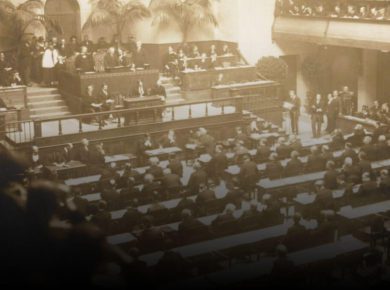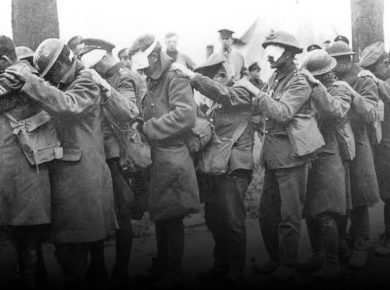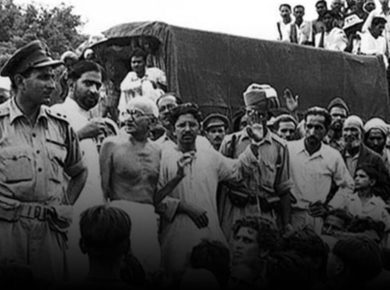Emergence of Socialism
- Industrialization and capitalism brought benefits as well as hardship to man – unemployment, smoky, crowded cities, unhealthy living and working conditions, rivalry and conflict between nations.
- As working men got the right to vote and elect their representatives in government, they forced the passage of laws that eliminated many of the early evils that industrialization had brought about.
- Greatest challenge to laissez faire, & to capitalism itself, has come from the idea of socialism, which grew in beginning as a reaction against the evils of capitalism.
- The idea appealed particularly to workers. Through their struggles, they were able to achieve much improvement in their living conditions.
- Laissez faire doctrine was opposed by many people. Gradually, almost all the countries came to accept the idea that the state has a legitimate right and duty to regulate the economy.
- Ideas of socialism also arose which while recognizing the importance of Machines & making them even better, aimed at solving the problems created by capitalism, by building a new social order.
- The idea grew that, capitalism itself is evil and needs to be replaced by a different kind and economic system in which the means a production would be owned by the society as a whole and not by a few individuals.
Rise of Socialism
- Many philosophers & reformers in the past had expressed their revulsion against inequalities in society and in favour of a system in which everyone would be equal. However, these ideas had remained as mere dreams.
- The French Revolution a 1789 with its promise of equality had given a new impetus to these ideas, but it did not usher in an era of equality in economic, social and political life.
- The-wide gap between the aims of the French Revolution and the actual conditions in France after the revolution created serious discontent among the people.
- It led to an attempt to overthrow the existing government in France with a view to building a society based on socialist ideas. This attempt, known as Babeuf’s Conspiracy, is an important event in the history of socialism.
Babeufs Conspiracy
- Babeuf was born in 1760 and had participated in the French Revolution. He organized a secret society called the Society of the Equals.
- Babeuf, in a manifesto, had declared, “Nature gave everyone an equal right to enjoyment of all goods….. In a true society, there is no room for either rich or poor”.
- He said that it was necessary to make another revolution which would do away “with the terrible contrasts between rich & poor, masters and servants!
- The time has come to set up the republic of equals, whose welcoming doors will be open to all mankind.”
- The society planned an uprising, but the government came to know of the plan and in May 1796, a large number of leaders including Babeuf were arrested & executed.
- Though Babeuf’s attempt at overthrowing the government had failed, his ideas exercised an important influence on the growth of socialist movement.
Utopian Socialists
- Saint-Simon, Charles Fourier, Robert Owen – Late 18th century to mid-19th century
- They viewed property in relation to its usefulness to society.
- They recognized the evils of capitalism and proposed the establishment of a new and better system of society in its place.
- Saint-Simon coined the slogan, ‘from each according to his capacity, to each according to his work‘.
- They visualized a society free from exploitation of any kind and one in which all would contribute their best and would share the fruits of their labour.
- However, methods they advocated for the establishment of such a society were impracticable & ineffective. Hence, they came to be called utopian socialists.
Blanqui
- Louis Blanqui was a prominent revolutionary who helped in spreading ideas of socialism & played a leading role in every uprising in Paris from 1830 to 1871.
- He believed that through a revolutionary conspiracy, power could be captured to bring about socialism.
Communist League
- It had members in many countries of Europe. Its slogan was ‘All men are brothers’. Thus, internationalism was one of its important features.
- In 1847, its name was changed to the Communist League, and it declared as its aim, ‘the downfall of the bourgeoisie, the rule of the proletariat, the overthrow of the old society of middle class, based on class distinction, and the establishment of a new society without classes & without private property.’
- Its journal carried the slogan, “Proletarians of all lands, unite!”
- It instructed Karl Marx and Frederick Engels to draft a manifesto.
Marxian Socialism
Karl Marx & Frederick Engels
- The Communist Manifesto first appeared in German in February 1848.
- The influence of this document in the history of the socialist movement is without a rival.
- It was the work of Karl Marx and his lifelong associate Frederick Engels.
- Both Marx and Engels were born in Germany, but spent much of their life outside Germany, mostly in England.
- Through their work in the socialist movement and through their numerous writings, they gave a new direction to socialist ideology and movement.
- Their philosophy is known as Marxism, and it has influenced almost every field of knowledge.
Communist Manifesto
- Communist Manifesto stated that the aim of workers all over the world was to overthrow the capitalism & establishment of socialism.
- “In place of the old bourgeois society, with its classes and class differences”, it said “appears an association in which the free development of each is the condition for the free development of all”.
- It pointed out that socialism was not merely desirable, but also inevitable.
- Capitalism, it said, does not serve the needs of man and, like other social and economic systems in history, it would be replaced by a system, better suited to human needs.
Philosophy of Marxism
Marx analysed the working of capitalism in his famous work Das Kapital (Capital) & pointed out the characteristics that would lead to its destruction.
- According to him, workers produce more ‘value’ than they get in the form of wages, the difference being appropriated by the capitalists in form of profits.
- This constitutes the basis of conflict in capitalist society. Profits can be increased at the cost of workers’ wages &, therefore, interests of workers and capitalists are irreconcilable.
- Economic crises were inevitable under capitalism because of the discrepancy between the purchasing power of workers & total production.
- These crises would be resolved only if the private ownership of the means of production is abolished, and the profit motive eliminated from the system of production.
- With this, production would be carried on for social good rather than for profits for a few.
- The exploiting classes would disappear & a classless society would emerge in which there would be no difference between what was good for the individual and for society as a whole.
- Marx and Engels believed that this would be accomplished by the working class which was the most revolutionary class in capitalist society.
- They advocated that the emancipation of the working class would emancipate the whole human race from all traces of social injustice.
- Around the time the Communist Manifesto was published, revolutions broke out in almost every country in Europe viz. 1848.
- These revolts aimed at the overthrow of autocratic governments, establishment of democracy and also, in countries such as Italy and Germany, at national unification.
- Major forces in these revolutions were the workers who had been inspired by ideas of socialism. The Communist League participated in these revolutions in many countries. However, all these revolutions were suppressed.













1 comment
thankyou very much to share the knowledge.